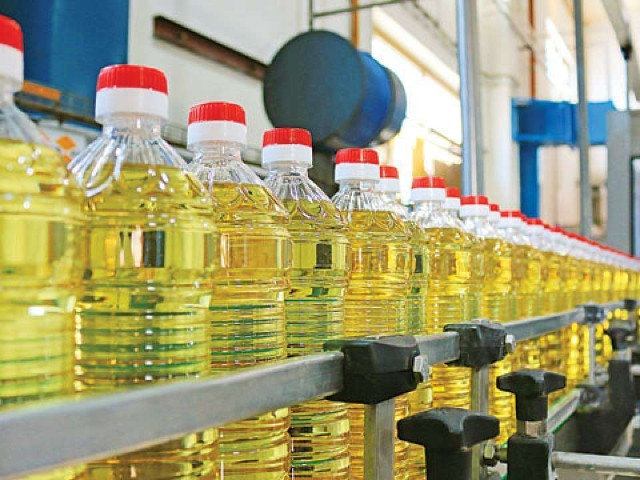KARACHI:
Pakistan’s agriculture sector is in urgent need of attention from the government to boost the local production of edible oil. The country’s annual import of edible oil stands at a staggering $4 billion, causing a significant drain on the country’s economy.
Experts suggest that the coastal areas of Sindh have high potential for the production of palm, sesame, and canola oils, but it is imperative that the government takes swift action to increase production and reduce reliance on imports.
Former Vice Chairman of Pakistan Vanaspati Manufacturers Association (PVMA), Sheikh Umer Rehan, called for urgent action to increase the production of edible oil and seeds in the country.
Due to the State Bank of Pakistan’s (SBP) decision to curb Letters of Credit (LCs) and the shortage of foreign exchange, the price of edible oil in the country has been steadily rising, making it increasingly difficult for the people to procure the commodity, noted Rehan.
Speaking to The Express Tribune, President of Concave Agri Services Muhammad Ali Iqbal said, “The biggest challenge is the will of the government.”
Iqbal also emphasised the need for standardised approaches for the cultivation of different edible oil plant varieties.
Due to non-standardised approaches, locally cultivated different edible oil plant varieties have not been able to achieve desired results. For example, in Mianwali, Canola is being cultivated significantly now, but the non-approved Canola variety of UAF-11 used by the majority of farmers contains around 20% euric acid, exceeding the maximum limit of euric acid for edible oil, which is less than 5%. This lack of standardisation has resulted in a rise in smuggling due to the hike in prices of edible oil.
“The edible oil industry doesn’t want to a pay fair price to the local farmers, but seems to be willing to pay more to foreign growers,” lamented Iqbal.
President Sindh Chamber of Agriculture Miran Mohammed Shah highlighted that the Southern Divisions of Sindh, including the areas of Hyderabad, Mirpurkhas, and Shaheed Benazirabad, are already making advances in growing oilseed crops. However, local farmers are not getting any support from the government side in the development of these seeds, including incentives like subsidised rates and ensuring the availability and development of such seeds.
According to Senior Vice President of Sindh Abadghar Board (SAB) Mahmood Nawaz Shah, there is a huge opportunity in Pakistan to grow oil seeds with a sustained long-term policy. This policy will include the provision of quality seeds/plants, proper pricing, and extension work so that growers can attain proper yields and return on the crop.
Despite identifying the opportunity to grow oil seeds in Pakistan for more than a decade, there is still a lack of attention from the government in agriculture to develop a long-term sustainable policy, he said.
With the country’s reliance on imports and rising prices of edible oil, urgent action is necessary to boost the local production of edible oil in Pakistan. The potential for the production of palm, sesame, and canola oils in the coastal areas of Sindh can be harnessed with the government’s intervention and support for standardized approaches and the development of quality seeds/plants. A sustained long-term policy is needed to improve the agriculture sector’s production of edible oil in Pakistan.
Published in The Express Tribune, April 9th, 2023.
Like Business on Facebook, follow @TribuneBiz on Twitter to stay informed and join in the conversation.

